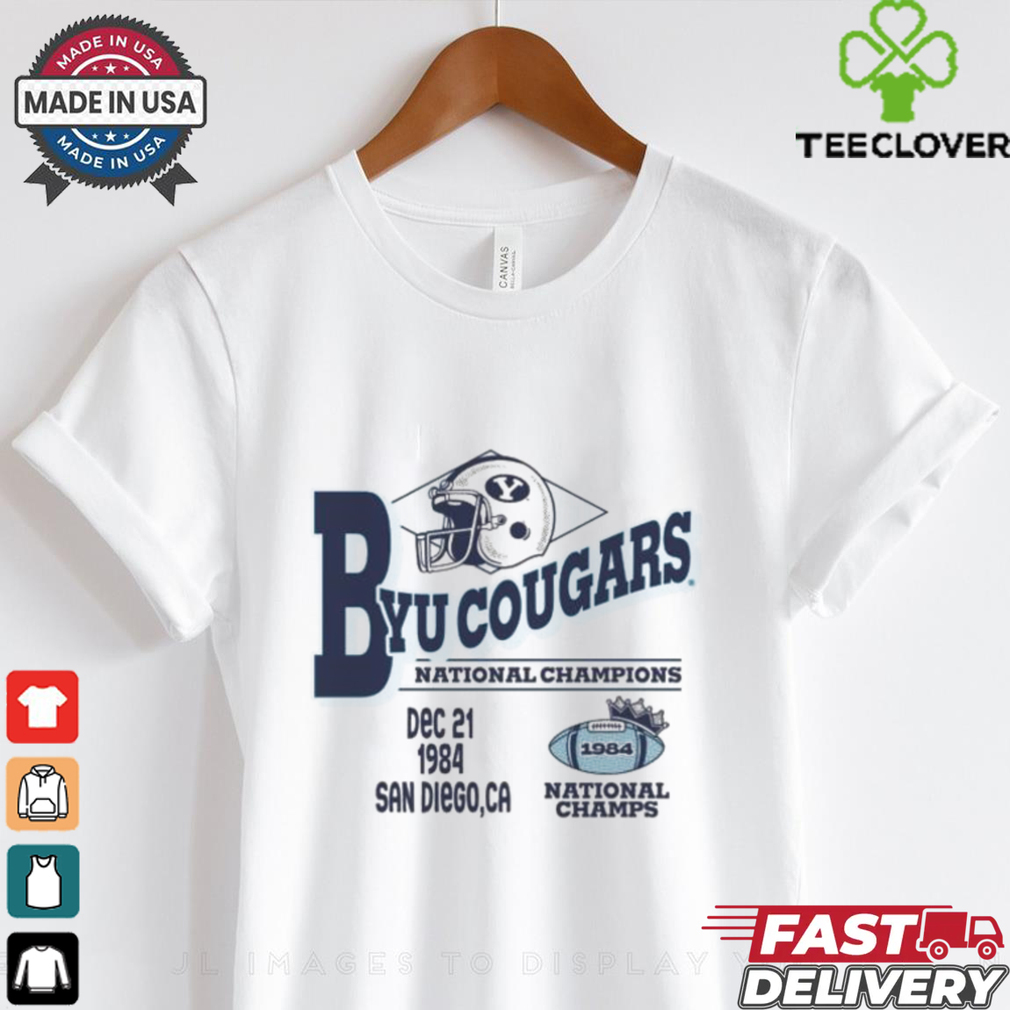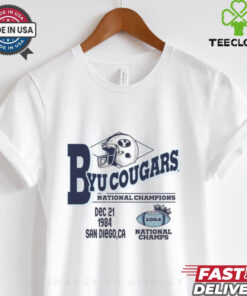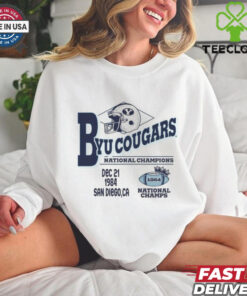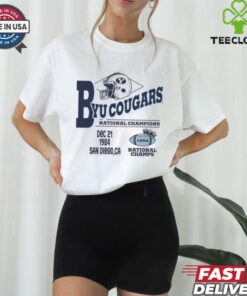Byu Cougars National Champions Dec 21 1984 San Diego CA T shirts
$26.99 Original price was: $26.99.$17.95Current price is: $17.95.
-
5% OFF 2 items get 5% OFF on cart total Buy 2
-
10% OFF 5 items get 10% OFF on cart total Buy 5
-
15% OFF 10 items get 15% OFF on cart total Buy 10
Share this:
- Click to share on Twitter (Opens in new window)
- Click to share on Facebook (Opens in new window)
- Click to share on LinkedIn (Opens in new window)
- Click to share on Tumblr (Opens in new window)
- Click to share on Reddit (Opens in new window)
- Click to share on Pocket (Opens in new window)
- Click to share on Pinterest (Opens in new window)
Byu Cougars National Champions Dec 21 1984 San Diego CA T shirts
At sundowner time, I arrive at a bar heavily clad in Byu Cougars National Champions Dec 21 1984 San Diego CA T shirts length, platform boots, white skinny jeans and an oversized black sheepskin jacket, sporting Miu Miu Limited Edition Black and white sunnies. It’s warm but the blowy gusts of wind make it seem cooler. I wear a huge muffler around my neck to save me from catching a cold.On the other tables are people in shorts and tshirts, or creased linen tops, on the beach, bikinis and budgie huggers and, occasionally, you see beautiful girls with ripped jeans or shorts. And on everyone’s feet are either sandles or trainers ! Mostly trainers (or sneakers, for you Americans).
 ()
()Byu Cougars National Champions Dec 21 1984 San Diego CA T shirts hoodie, tank top, sweater and long sleeve t-shirt: best style for you
Their smooth, seamless cups look Byu Cougars National Champions Dec 21 1984 San Diego CA T shirts under tight-fitting clothing making them the perfect choice for fitted sweaters and bodycon dresses. Unlike unlined bras, t-shirt bras and contour bras create a symmetrical, rounded breast shape.Women with asymmetrical boobs sometimes opt for push-up t-shirt bras with removable padding so they can customize the fit for a more symmetrical look. To get the best fit, choose a t-shirt bra with a snug band and cups that completely contain your breast tissue.
 ()
()In Korea, where it’s called Seollal, there’s also a complicated political history behind the Byu Cougars National Champions Dec 21 1984 San Diego CA T shirts. According to UC Davis associate professor of Korean and Japanese history Kyu Hyun Kim, Lunar New Year didn’t become an officially recognized holiday until 1985 despite the fact that many Koreans had traditionally observed it for hundreds of years. Why? Under Japanese imperialist rule from 1895 to 1945, Lunar New Year was deemed a morally and economically wasteful holiday in Korea, Kim said, despite the fact that Lunar New Year has always been one of the country’s biggest holidays for commercial consumption. But Koreans never stopped celebrating Lunar New Year simply because the government didn’t recognize it as a federal holiday, Kim said. So as South Korea shifted from a military dictatorship towards a more democratized society in the 1980s, mounting pressure from the public to have official holidays and relax the country’s tiring work culture led to the holiday being added to the federal calendar as a three-day period.
 ()
()This Flowers having a Weird Mom builds character Xmas Day T-shirt, hoodie, sweater, tank top, long sleeve, and V-neck t-shirt is a made-to-order product, It is designed by TEECLOVER LLC. This is a limited edition product was made in the USA.
Brand: TEECLOVER Clothing LLC, Inc. - An online fashion company in the USA
At TEECLOVERLLC, we have provided quality T-shirts that are sure to make you feel comfortable and cool even in the scorching heat or cold weather. We also seek to provide our customers with the highest level of customer service possible by adhering to customer satisfaction policies and an open communication style. T-SHIRT FEATURES: - High quality 100% Soft cotton (fiber content may vary for different colors) UNISEX shirt. HOODIE and SWEATSHIRTS FEATURES: - 50% Cotton; 50% Polyester (fibre content may vary for different colors) - IMPORTANT: Runs true to size. Are buyers responsibility to consult the size chart before placing the order. - The design is printed on the t-shirt with a digital printer. - If you want to CUSTOMIZE more this product, please send me a message. CARE: - Machine wash, with cold water, and inside out - Tumble dry on low or hang to dry - DO not iron directly on the design ♥ HOW TO ORDER T-SHIRT, HOODIE, SWEATSHIRT , LONGSLEEVE







